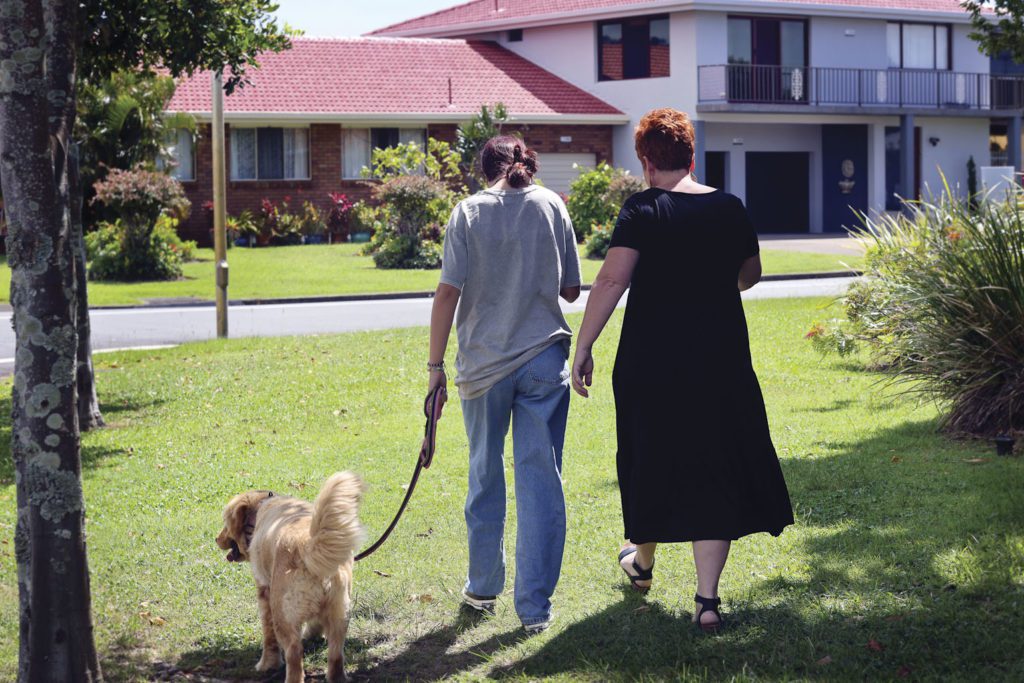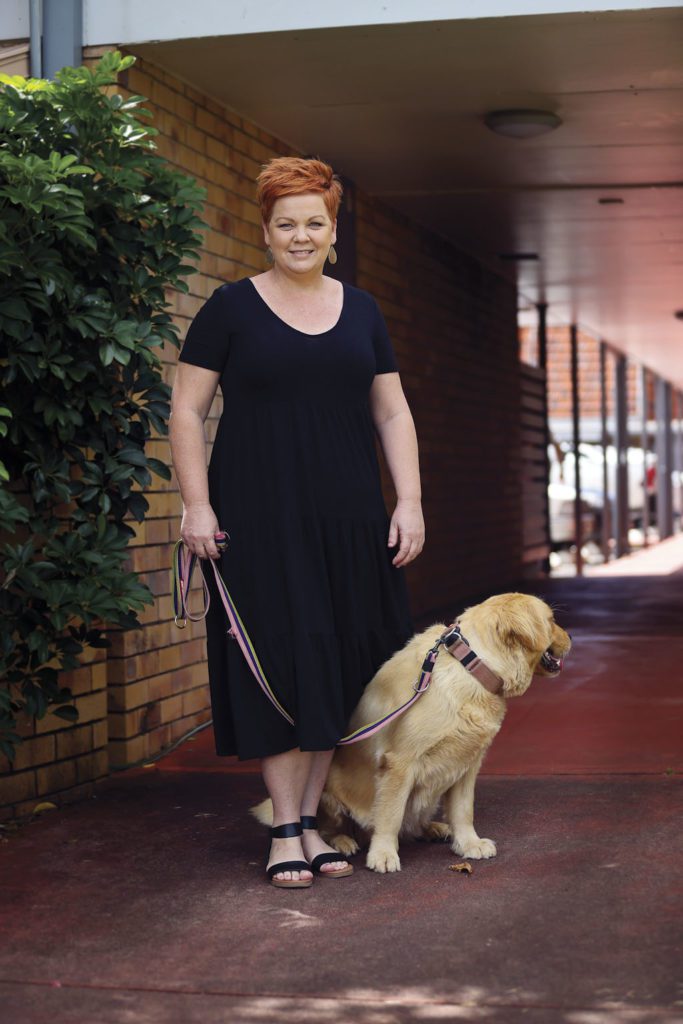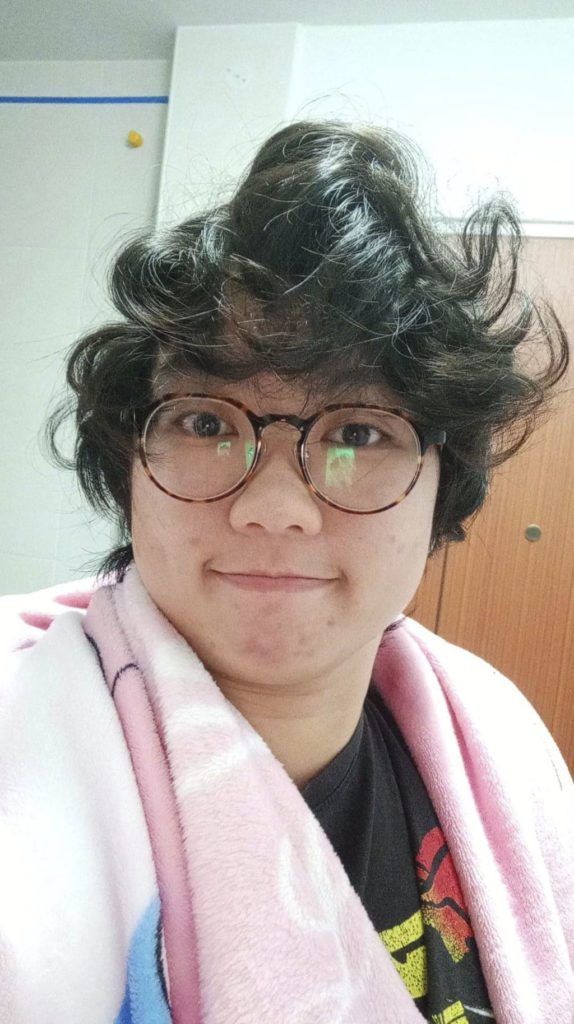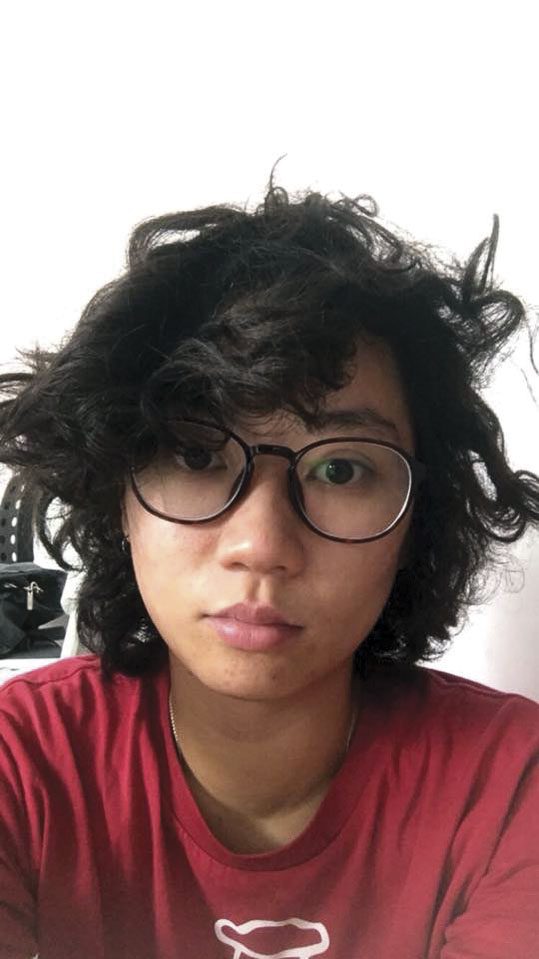HEALTHCARE
Healthy brains, healthy lives
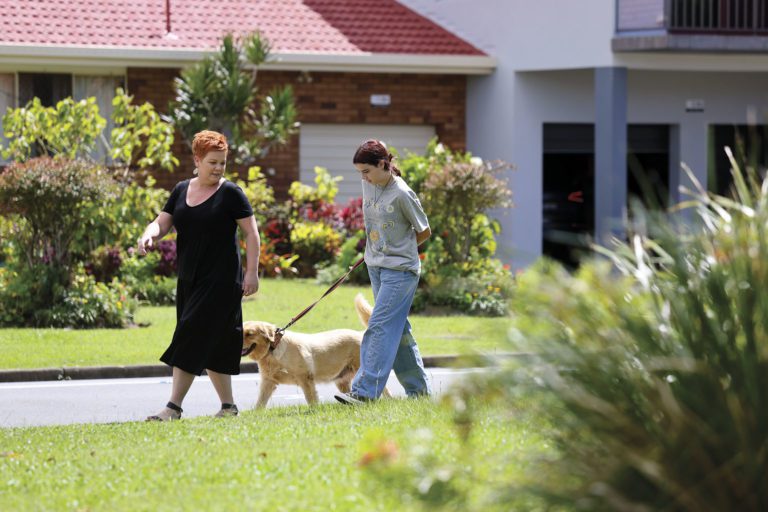
WORDS: Greg Pride PHOTOGRAPHY Brian Usher - www.usherusher.com plus Supplied
Tweed Heads neuroscience-based company Brain Care uses drug-free, personalised brain health interventions to treat a wide range of psychological and neurological conditions. Because no two brains are alike.
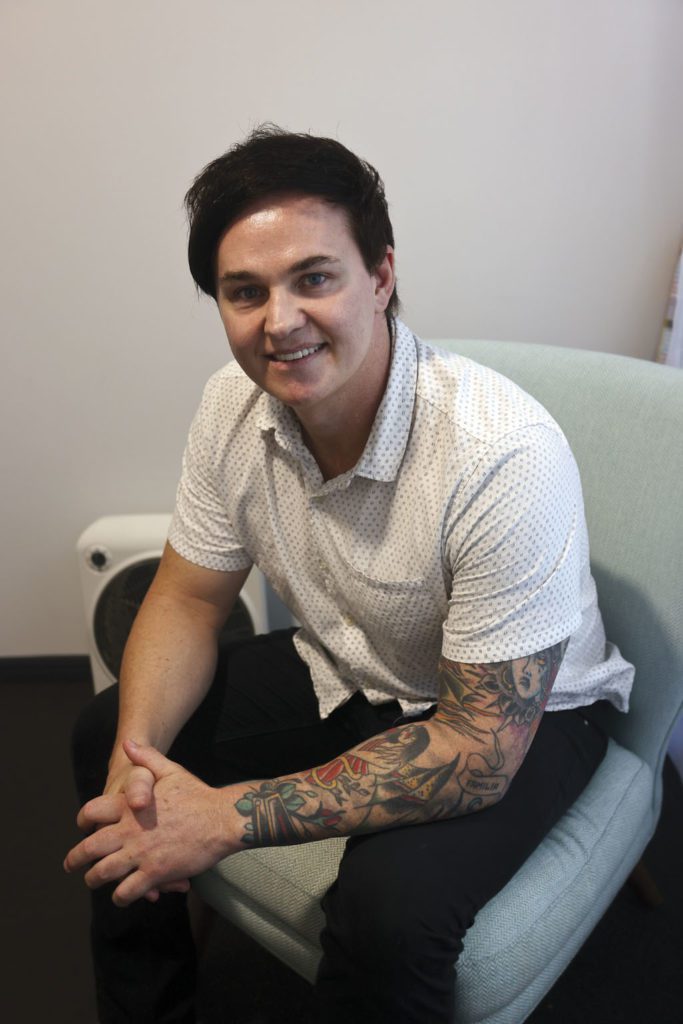
The Brain Centre therapist
JONTY’S STORY
WHEN 14-year-old autism and ADHD sufferer Jonty Vloedmans’ much-loved dog had to be put down last year, it was the trigger for a dramatic and dangerous downward spiral in the teen’s mental health that had her parents, Nikki and Jason, worried sick.
Living in regional Queensland, with poor access to mental health services, the Vloedemans were at their wits’ end until they recently turned to Brain Care at Tweed Heads for help.
“We’d had the dog for 11 years, most of Jonty’s life, and losing him was a significant traumatic event and the catalyst for her downturn,” Nikki tells ORM. “Jonty has always had very complex needs – she has a diagnosis of autism and ADHD – and as she grew I guess things changed. She suffered significant depression, suicidal ideations and self-harm episodes. There have been lots of hospital visits.”
Nikki and Jason not only had Jonty to worry about – their son, Noah, 20, has Asperger’s Syndrome and sensory processing disorder. Compounding the couple’s stress is the fact they live in Mackay, where mental health and therapy services are thin on the ground.
“It’s quite tragic,” says Nikki, a disability worker. “The services are very limited and there are massive waiting lists. You often have a different person to deal with at every appointment, which is very stressful for Jonty because she has to tell her story over and over again. She’s on all the medications and has done talk therapy until she’s blue in the face.”
Nikki says the family was ‘just plodding along’ with Jonty’s treatment until her sudden mental health decline made them realise they had to try something radically different.
She had heard about Brain Care through a friend whose son had received treatment there and had positive results. She and Jason persuaded Jonty to give it a go.
With a motto of ‘train your brain, change your life’, Brain Care was established more than 20 years ago by a senior psychologist and former president of the Australian and New Zealand Association of Neurologists (ANZAN). It’s one of the few facilities of its kind in Australia offering drug-free, neurosensory therapies to assist those suffering from acute brain injuries, autism, ADHD and other learning difficulties, bipolar disorder, schizophrenia, anxiety and depression and even multi-personality disorder.
With the help of NDIS funding, Nikki and Jason were able to get Jonty into Brain Care for an initial three weeks of intensive treatment involving the centre’s acclaimed neuro-feedback training. The therapy uses tiny electrodes attached to the patient’s scalp as they listen to music or watch a movie, sending subliminal messages to correct the way the brain is responding to the images or sounds on the screen.
Patients are first seen by one of Brain Care’s expert psychologists for an initial assessment followed by what’s known as IntegNeuro – a touch-screen computer program that assesses the brain’s cognitive functioning including sensory-motor, memory, attention, language and planning capacities. The patient’s Brain Function Profile (BFP) is then mapped through a quantitative encephalogram (qEEG) which records and analyses brainwaves and compares them to an international database.
“It’s the sort of sophisticated treatment we definitely don’t have access to in Mackay,” says Nikki. “The qEEG showed Jonty was having a spike in seizure activity in her brain, which could be why she’s been having these significant anger issues and emotional outbursts. It’s one of the main things that really appealed to us about Brain Care – it’s practical treatment for the root cause of the problem, rather than just the symptoms.
“It’s something we never would have done with talk therapy and Cognitive Behaviour Therapy. They’re great, but if there’s something that isn’t quite right with the brain – the wiring of the brain – you’re really just constantly treating what you see rather than what’s actually going on. You’ve got to get to the nitty-gritty of the problem so these kids can stay on task and be focused.”
Nikki says Brain Care’s treatment is also attractive for the likes of Jonty because they don’t have to engage in lengthy and emotionally taxing psychological or psychiatric sessions.
“All she has to do is just sit and relax and let the work happen on a subconscious level,” she says. “This was something completely different for us to try and a little less confronting for Jonty to not have to sit and tell her story again and again and again.”
Jonty plans to return to Brain Care in May for another round of treatment, with future therapy mapped out according to her progress.
“It’s not a one size fits all approach,” Nikki says. “The Brain Centre team has been amazing, tailoring Jonty’s treatment to what works.”
It’s only early days but Nikki says the initial signs are encouraging.
“There definitely seems to be a sense of calm coming over Jonty and we’ve noticed a reduction in her impulsivity,” she says. “The external stressors and triggers are still there but she seems to be able to process them a lot better, which is good. It’s a positive sign and I certainly hope it’s going to play a big part and a shift in where things go from here.”
ALEX’S STORY
ALEX Yuki No Akarusa, an autistic savant who also has Asperger’s, does not hesitate when asked how Brain Care’s neuro-feedback therapy has impacted her life.
“It’s been life-changing,” she says. “It was, or rather is, the reason I am here. Without the clinic and its wonderful therapists, I would have been a dropout, a runaway or committed suicide. Brain Care quite literally saved my life and turned it around in ways I couldn’t have imagined.”
An effervescent, articulate and highly intelligent young woman who composes and performs opera music and writes stunning poetry, Alex, 29, is speaking to Ocean Road via Zoom from her native Singapore, where she has been living for the past two years.
But Alex very much regards herself as an Australian, having grown up in Murwillumbah where she attended Mount Saint Patrick College while living with her adopted grandparents. It was a member of her ‘Aussie family’ who first noticed she may have autism and sought help from Brain Care, which was then known as Solstice Mind Matters. She underwent about 12 months of intensive neuro-feedback therapy at the clinic and says the effects have been profound and long-lasting.
“Before I had the treatment, I would be having horrible meltdowns to rival Pompeii, hiding under tables at school, getting into fights and being suicidal,” she says. “With the therapy, I began to see things far more clearly and I’ve learned to deal with social situations, read cues and can understand certain nuances in conversations. I began to be able to better express myself, to make sense of my emotions and connect the dots in things that made me begin to make sense of everything. Expression came far more easily to me, whereas before my mind was a pure blur of sound, colour and light.”
Alex says she and her family noticed major improvements almost immediately after beginning neuro-feedback therapy.
“The changes happened very quickly,” she says. “For example, I’ve always been obsessed with opera. It’s my one goal in life to be an opera composer and conductor. I used to listen repeatedly to a record just to understand what was going on, but I struggled to understand the music per se. But Immediately after I did neuro-feedback, I was able to pick up music very quickly, almost within the space of a day. It was the same with art. I used to draw stick figures and after my therapy, it was full portraits.
“I also became much more expressive. Before that, it was almost like words were stuck in my mouth and everything was tangled inside of me. I could feel intensely and I still do feel intensely, but the problem was I did not know how to tangibly put how I felt inside into words if that makes sense. It accelerated my ability for my brain to take in things like a sponge. It was almost like a door was finally opened and I realised I wasn’t broken inside.”
Alex, who shares her music on YouTube and one day hopes to work professionally in opera and theatre, says she still feels a deep connection to Australia and plans to return as soon as the pandemic and her personal circumstances allow.
“My music and what I write in part is deeply connected to Australia,” she says. “I’m currently planning a symphony around the mythos of Australia and it’s brought me deeply back to what I grew up with – the Dreamtime and the countryside. It’s always going to be home for me.”
Alex says a large part of that close connection to Australia is the ‘life-changing’ treatment she received at Brain Care.
“Brain Care don’t just give you neurofeedback and therapy, they literally become like family to you,” she says. “I’ve never noticed that with other psychologists or psychiatrists before, and I think that kind of treatment is wonderful because you’re not just treating the patient like a test subject or guinea pig. With Brain Care, they literally take it to the level where they want to help you every step of the way. Without that little bit of empathy and the deepest form of kindness that they have, I think it would have been completely clinical and impersonal, but it’s not. That’s what makes them great, and gives them that edge in the field.”


